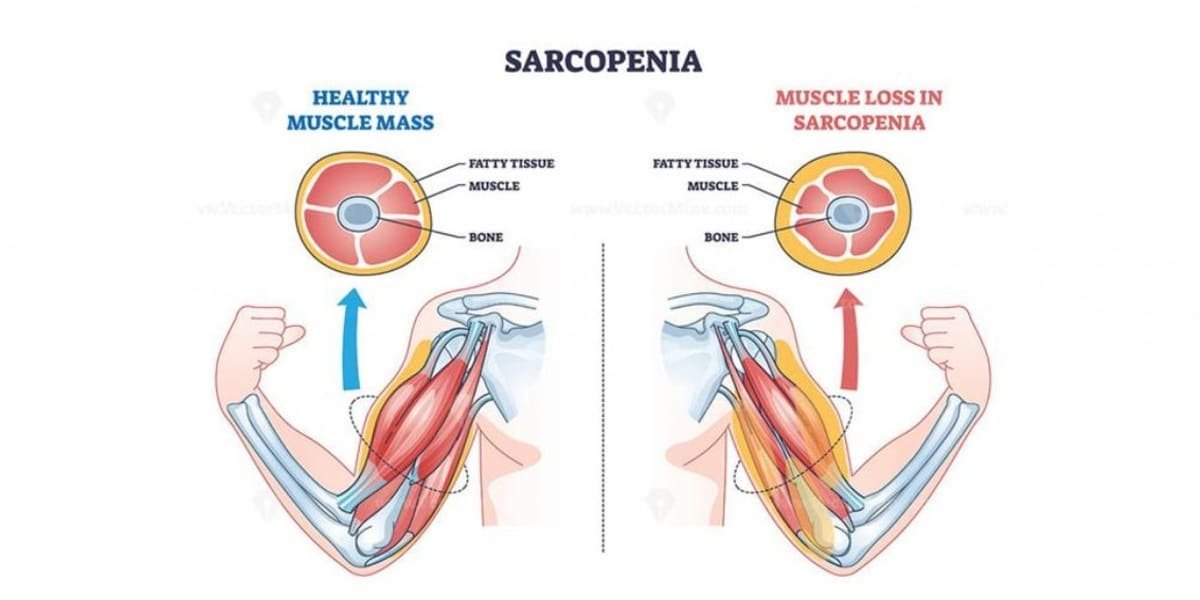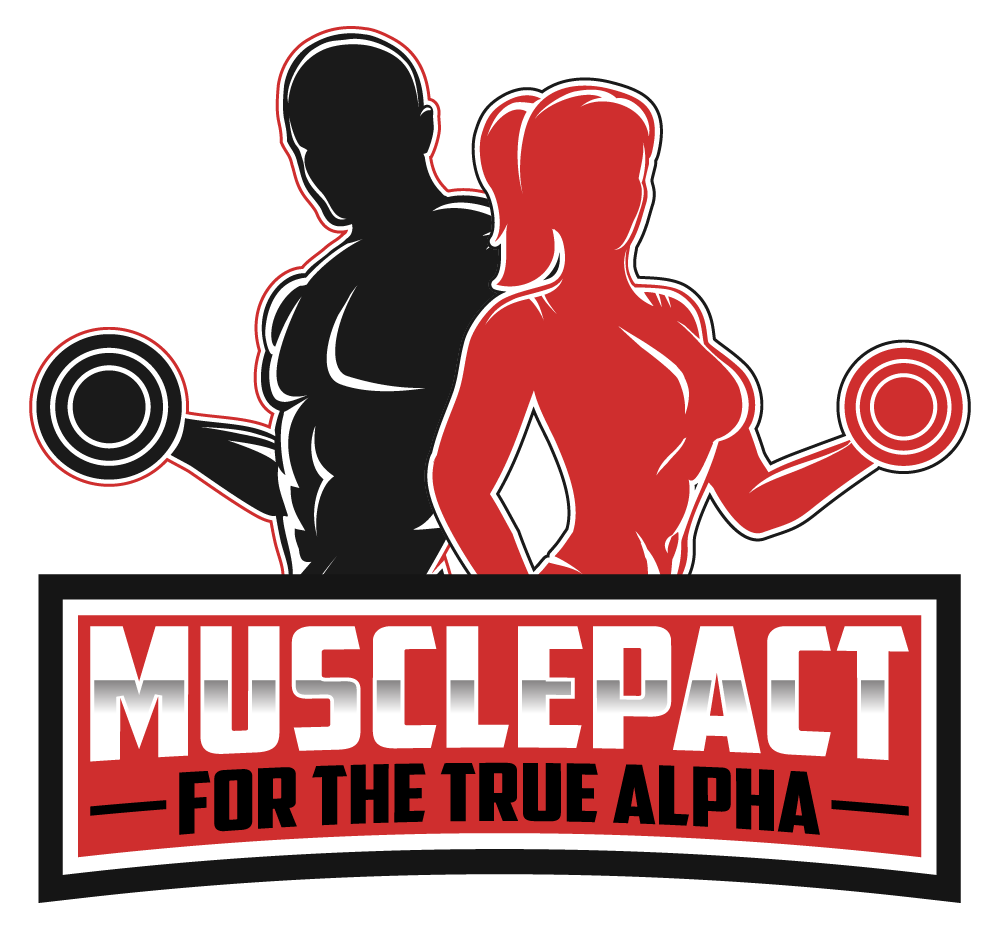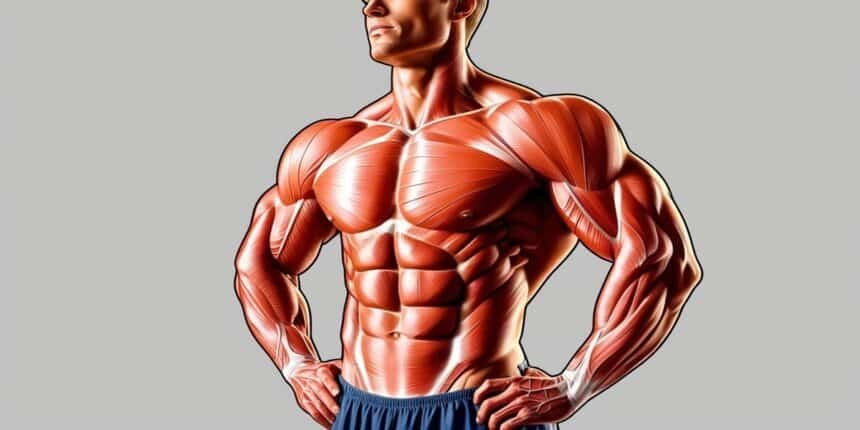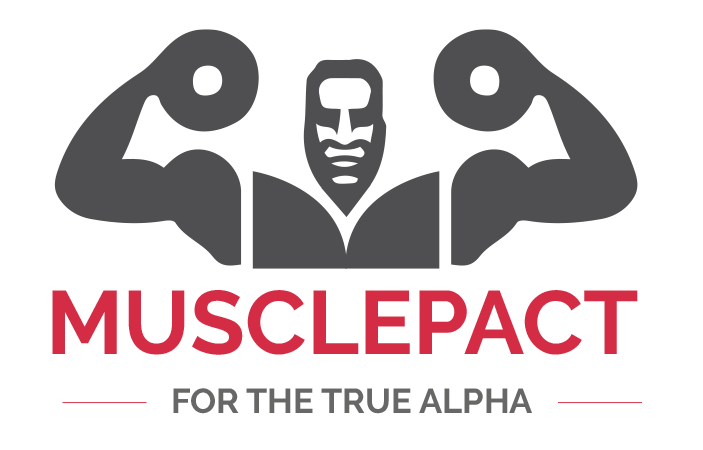Muscle hypertrophy refers to the increase in skeletal muscle size through a combination of organic growth factors found within the body. It is very important for athletes, bodybuilders, and even all individuals wanting to improve performance and physique. knowing exactly how long does it take for muscles to grow will help you set realistic goals and stay motivated throughout the whole process. This guide explains the science behind muscle growth, what causes muscle to grow, and how long does it take for muscles to grow.
What are the things that make muscles grow?
Muscle growth is driven by biological, nutritional, and training variables:
- Biological — genetics, age, and sex. For example, males have higher testosterone, a muscle-building hormone, and thus tend to put on muscle more easily.
- Nutrition is really important because Muscle protein synthesis, which is the process that happens to repair and grow muscles, requires a positive energy balance (this means that you need to consume more calories than you burn), and consuming a proper amount of protein.
- Other Training Variables — Factors like intensity, frequency, volume, etc. all play a critical role in determining hypertrophy. One of the most important muscle growth strategies is progressive overload, or increasing the intensity of your workouts over time.
- Lastly, proper rest and recovery — muscles repair themselves when we rest.
How Long Does It Take For Muscles To Grow

Beginners
If you’re just starting out with strength training, you may see gains in muscle mass quite quickly. We call this period newbie gains. For beginners, the first three to six months of consistent training will yield the most muscle, typically ranging from one to two pounds monthly for most people. In that early phase of training, these neural and muscular changes contribute to rapid growth. Neural adaptations allow you to recruit muscle more efficiently, and muscular adaptations make muscle fibers bigger.
Intermediate and Advanced
As we move on from beginner gains, the rate of muscle growth tends to slow. If you are an intermediate lifter, the rate at which your growth will be cut down to as little as about 0.25 and 0.5 pounds per month over the next year or two. For advanced lifters, gains may be as slow as 0.1 to 0.25 pounds per month. The reason for this deceleration is that the body adapts to maintain muscle mass and needs more potent stimuli to grow further.
Visible Changes
Each workout kicks up a few biochemical processes that lead to some muscle growth, but the results we are after are a long game. Beginners will notice pretty obvious muscle growth and changes in strength within about four to six weeks of continuous training. But this range is not fixed; it depends on the personal body and changing factors, like workout volume, diet, and genetics.
Ways to Maximize Your Muscle Growth

Nutrition
Nutrition is an important aspect of muscle growth. Caloric surplus guarantees that there is sufficient energy for muscle repair and growth. One focus should be on protein since it supplies the foundation for muscle protein synthesis. Target approximately 0.36 to 0.45 grams of protein per pound of body weight per day or higher.
Training
Progressive overload is necessary for the growth. You could achieve it by increasing the weight, the reps, or the frequency. Moreover, it is essential to make sure that the exercises you do will hit all the primary muscle groups to develop in a balanced manner.
Rest and Recovery
Rest and recovery are as important as the training itself. When the body takes a break, it can repair and build back up the muscle fibers, resulting in stronger, bigger muscles. Getting enough rest and time off from workouts is important for muscle growth.
Age and Muscle Growth
Another variable influencing muscle growth is age. Older adults naturally lose muscle mass, a condition called sarcopenia. The process begins in your 30s and speeds up every decade thereafter. But regular strength training allows you to compensate for this loss and even build.

FAQs
What is Muscle Hypertrophy?
Muscle hypertrophy is the increase in the size of skeletal muscle fibers. It is typically accomplished via resistance training and good nutrition. It deals with the growth of muscle fibers, which happens as a result of resistance or weight increase through the years.
How Does Muscle Grow?
Muscle hypertrophy occurs when muscle protein synthesis exceeds muscle protein breakdown. The latter is activated in response to resistance training—and is also supported by good nutrition, particularly dietary protein.
How Important is Diet when Building Muscle?
A proper macronutrient diet (mostly carbs, proteins, and fats) is a must for building muscle. Carbohydrates provide an energy source during exercise. The, the proteins assist in the repair and building of muscle tissue. And fats are necessary for the body for hormone production.
How Long Does It Take to See Muscle Growth?
Depending on your starting musculature and how hard and consistently you train, muscle growth can be pretty dramatic, from days to weeks to months. Novices may gain quicker than advanced trainers.
What Types of Exercises Are Best for Building Muscle?
If you want to build muscle, you need to do strength training, especially weightlifting. Muscle growth takes place when you apply progressive overload to your workouts, which means you should progressively keep increasing the intensity of your workouts.
Does Muscle Recovery Matter?
Yes, muscle growth requires rest. During rest periods, your body repairs and builds the muscle fibers, an important component of hypertrophy. Sleeping enough and taking adequate recovery time are important parts of any muscle building routine.
Do Hormones Influence Muscle Growth?
Hormones like testosterone, human growth hormone, and insulin-like growth factor certainly do influence muscle growth by increasing protein synthesis and inhibiting protein breakdown.
Can Anyone Build Muscle?
Yes, anyone can build muscle as long as they train consistently and eat appropriately. However, there are some things, such as genetics, age, and gender, that affect how quickly an individual can build muscle.
How Long Does It Take to See Muscle Growth: Final Thoughts
Creating muscle takes some time and dedication, as well as comprehending just how muscle development functions. Newbies might notice fast, longstanding gains. However, it will take greater effort for more experienced lifters to see regular growth. Still, through the right food, progressive training, and enough sleep, anyone can maximize their muscle-building potential and get closer to their ideal physique.
Before you leave, learn how to choose a good small gym bag. And make sure you follow us on Facebook for more fitness guides.
Sources:
- www.pmc.ncbi.nlm.nih.gov/articles/PMC7780094/
- www.pmc.ncbi.nlm.nih.gov/articles/PMC3285070/
- www.pmc.ncbi.nlm.nih.gov/articles/PMC6950543/
- www.pmc.ncbi.nlm.nih.gov/articles/PMC8075408/
All images are AI generated with canva.com






